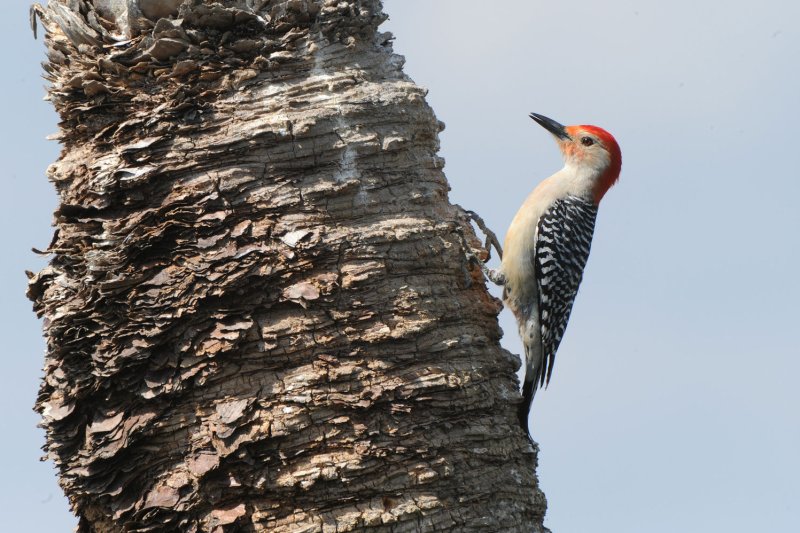Woodpeckers absorb several thousand g's of force when they peck their head and beak against a tree. Photo by Kevin Dietsch/UPI |
License Photo
Feb. 2 (UPI) -- Turns out, woodpeckers do get brain damage. All that pecking comes at a price, new research shows -- or does it?
Until now, many assumed woodpeckers had a remarkably resilient brain. Woodpeckers absorb 1,200 to 1,400 g's of force every time they slam their head and beak into a tree. Just 60 to 100 g's is enough to cause a concussion in humans.
"There have been all kinds of safety and technological advances in sports equipment based on the anatomic adaptations and biophysics of the woodpecker assuming they don't get brain injury from pecking," Peter Cummings, researcher at the Boston University School of Medicine, said in a news release. "The weird thing is, nobody's ever looked at a woodpecker brain to see if there is any damage."
When scientists analyzed the brains of woodpeckers from collections at Chicago's Field Museum and the Harvard Museum of Natural History, they discovered elevated levels of tau, a protein linked with degenerative brain disease in humans.
In moderation, tau proteins support healthy brain function.
"The basic cells of the brain are neurons, which are the cell bodies, and axons, which are like telephone lines that communicate between the neurons," said researcher George Farah. "The tau protein wraps around the telephone lines -- it gives them protection and stability while still letting them remain flexible."
But brain damage can cause tau to accumulate and begin sabotaging brain function instead of supporting it.
"Cognitive, emotional, and motor function can be compromised," said Cummings.
Just as has been found in the brains of athletes who sustain multiple brain injuries during their careers, woodpecker brains featured larger amounts of tau than the brains of similarly sized, non-pecking peers.
Scientists can't be certain that the woodpeckers suffer brain injuries, but the evidence suggests they do.
"The earliest woodpeckers date back 25 million years -- these birds have been around for a long time," Cummings said. "If pecking was going to cause brain injury, why would you still see this behavior? Why would evolutionary adaptations stop at the brain? There's possibility that the tau in woodpeckers is a protective adaptation and maybe not pathological at all."
If tau is indeed a protective agent, the new research -- published this week in the journal PLOS One -- could inspire new ways of thinking about brain injuries and how to prevent them.
"Is there something we can pick out to help humans with neurodegenerative diseases?" Cummings said. "The door's wide open to find out what's going on and how we can apply this to humans."















